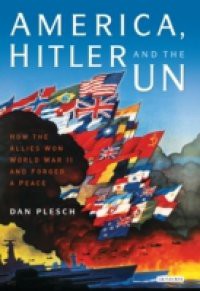On 1 January 1942, Churchill and Roosevelt issued a 'Declaration by United Nations' with 24 other states, forging a military alliance based on human rights principles that included China, India and the Soviet Union. This marked the beginning of the UN in a real and tangible form. Yet today many people have forgotten that the UN was born in the confusion and complexity of wartime. How did the armies of the United Nations co-operate during World War II to contain - and ultimately crush - Nazi expansionism? And when and for what purpose did the UN undertake to tackle the international economic and social challenges of the post-war world? The role of the UN in motivating the Allied powers to co-operate during the war and forge a meaningful peace in the aftermath is often overlooked. America, Hitler and the UN is the first book to address these issues fully and to explore how the profound restructuring of the international world order was organised while the war still raged. Drawing on previously unknown archival material, Dan Plesch analyses the engagement with the UN by all levels of society, from political elites to grass roots level. Illustrating that the Allied defeat of Nazism should properly be called a United Nations victory, Dan Plesch has pieced together the full story of how the UN intervened in surprising ways at a pivotal time in world history. America, Hitler and the UN is an important addition to the literature of World War II and essential reading for anyone with an interest in military or diplomatic history or contemporary international relations. Plesch argues that the UN's success is as vital today as it was then. Its revitalisation can draw on these lost lessons in peace and economic stability to improve policy making in the twenty first century.

